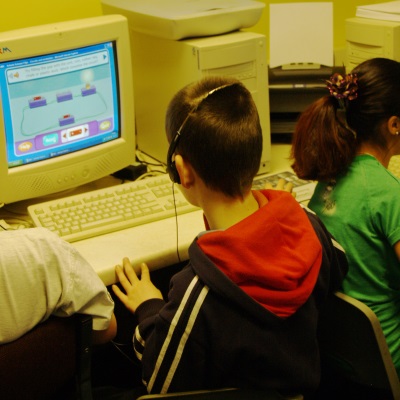 Some disruptive or strange behaviors exhibited by elementary age children may be caused by a learning disability that has not yet been diagnosed. Here’s an example:
Some disruptive or strange behaviors exhibited by elementary age children may be caused by a learning disability that has not yet been diagnosed. Here’s an example:
Eight-year-old Johnny can’t sit still at the table. He says his shirt makes him jumpy, and that his socks make his feet tingle. He struggles to take a bite of hot mashed potatoes, but soon after, he can’t stop his head from shaking back and forth.
“Stop it!” his dad screams. But it’s not that simple. This is because his child is suffering from Sensory Processing Disorder (SPD). Children with this condition have trouble using their senses effectively. Basically, they end up either over stimulated or under stimulated.
As described by Smart Kids with Learning Disabilities, SPD is “a common but misunderstood problem that affects children’s behavior, influencing the way they learn, move, relate to others, and feel about themselves.” Not all cases of SPD look exactly the same, but they have one thing in common: they affect a child’s behavior.
Another child loves to read. She devours book after book at home on the weekends, yet at school her reading ability seems to have diminished. In fact, at her last parent/teacher conference, the teacher told the child’s mother that she thinks the fifth grader plays dumb to get attention.
Imagine everyone’s surprise when the child’s new eye doctor states that the girl should have had glasses years ago. Come to find out, she could see perfectly up close, but when the teacher had rotated her seat to the back of the classroom, she could no longer see the words on the blackboard.
It is clear that undiagnosed learning disabilities can cause problems for the child both at home and at school. Children with these types of issues do suffer, as through no fault of their own, their behavior is affected.
A final example concerns the child who can never get the right word out. He wants to tell his mom what happened at school that day, but he rambles on and on until she is bored with his evasive monologue. “Forget it, Sam. If you don’t want to tell me what you did, then that’s fine!” she says as she stomps off in a huff.
Unfortunately for him, this child suffers from a learning disability that prevents him from finding the right word to express himself verbally. The connections in his brain just won’t let him. He isn’t trying to hide anything; in fact, what he wants the most is to tell his mother what happened.
These varied examples show that sometimes a child’s behavior stems from a problem in his or her brain. Instead of consciously acting “naughty,” these children have less control over their actions. They aren’t trying to be bad kids. In essence, most don’t understand why they act the way they do.
There is a powerful lesson here. Always be your child’s advocate. Instead of thinking the worst, think about how you can help. An early diagnosis of a learning disability is always best.










